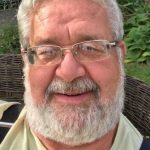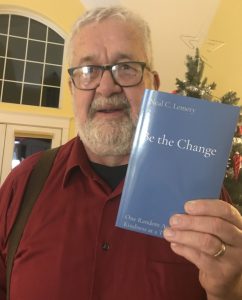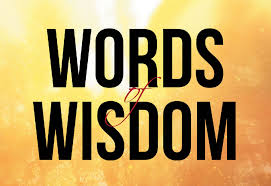 By Neal Lemery
By Neal Lemery
Spring brings out my tree planting urge, and a recent trip to the nursery added a new Japanese maple to add to my collection of plants in the yard.
I’m tasked to find just the right place for the new tree, wanting to add its lacy lime green foliage to my “art collection” of plants in the front yard, and anticipating where the new tree’s bright orange fall foliage will best be admired. I need to figure out where it will be best situated, and avoid the bright afternoon summer sun.
Finding the right place to grow is always a challenge for this gardener, a practice that dominates my gardening. It’s also a big factor in the lives of my friends and my community.
“How do we best grow the things we love?” is an ever-present question for me.
I keep in touch with several young men I’ve met and worked with when I volunteered at the local youth “correctional facility.” I was a tutor and teacher of gardening skills, and hopefully was someone who led by example and encouraged young people to better their lives.
One of those men is back in prison, still struggling with drug addiction, violence, and instability as he has tried to move through the many obstacles that ex-cons need to deal with. Other people may find it easy to simply label him as a criminal, and want to keep him locked up. I know him and his life to be much more complicated than what a snide label and categorization would describe him. His life has been hard, complicated, and filled with a long list of traumas and experiences that would challenge anyone to cope with.
Like all of us, he isn’t easily categorized by a few words and stereotypical judgements.
He’s at a point where he wants to dig deep into the whys and wherefores of his drug use. He’s clean now, thanks to one of the few positives of being locked up. He’s taking some anti-depressants and some medications for anxiety and trauma. Yet, he doesn’t want a lifetime of taking medications and wants to be healed, and to fully understand how to live a better life without depending on yet more chemicals and pharmaceuticals.
My friend wants meaningful treatment, and has asked the prison staff to get him into a Narcotics Anonymous group, and be involved in the work he knows will be hard, yet essential.
But there’s a waiting list, and more bureaucratic paperwork and delays. He’s been told to wait. And to continue to be untreated, unable to effectively move forward in his life, to work towards his plan for sobriety, and life after prison. He gets out next year, but he knows he’s not ready, that without treatment and without him doing some hard, introspective work, he’ll relapse, again, and keep repeating the cycle that has, again, led to another prison term.
It costs all of us $50,000 a year to keep my friend in prison. That’s right, $50,000. What if we spent that money on drug treatment, housing, vocational training, and some other essential social services, so people could be productive, safe citizens, building healthy lives, being builders of our communities?
I understand the idea that often, jail or prison is a needed break in the cycle of criminal thinking and addiction, that often the community is safer when some folks are locked up for a while. Yet, it is an expensive social experiment, and there are good arguments for putting all that money to better use. We tend to deal with the result, and not the causes, of criminal activity and addiction.
My friend waits. He takes his meds, he has had a few visits with a mental health counselor, and I’ve sent him some books on drug recovery and trauma. But all that is not enough. He needs more. He needs an NA group. He needs to work his 12 step program, and be with others in group sessions where they have deep and productive conversations about addiction and life without mind-altering drugs, about living clean and healthy. He needs the tools to cope with our society, with life on the streets, and trying to find and keep a job when you have a criminal record and not much of a social support system.
Being on a waiting list isn’t working. And, it’s not saving the taxpayers any money. The waiting list is part of the problem, and not part of the solution.
In the last few years, politicians have been spending some serious money on trying to deal with addiction and the related issues of lifelong trauma and violence, and looking at what really works to change people’s lives. Oregon’s experiment with decriminalizing drugs left us with more questions than answers, and we are now back to giving a lot of that problem to the criminal justice system.
I’m still thinking about my friend, locked up in a big prison, taking some pills, and waiting. He’s burning through $50,000 this year, and we’re all not getting a whole lot of return on this investment.
In Oregon, 4,000 prisoners were released last year, and 80% of them had no drug and alcohol treatment. Two thirds of these folks had diagnosed drug and alcohol problems. https://www.thelundreport.org/content/most-oregon-prisoners-cant-get-addiction-treatment-theres-bill-change .
He’s waiting, waiting to get on with his life, to find a good path to his future. I’ll wait with him, but it’s going to be a rough road, and the likely result won’t be what anyone wants.
I’m going to have better success for my new maple tree. I’ll find the right spot in the garden, with the right amount of sunshine, and the right amount of care. It will grow and it will share its beauty with my neighbors. I only wish the same for my friend.

Books: NEW book – BE THE CHANGE – One Random Act of Kindness at a Time; Neal’s other books include: Building Community: Rural Voices for Hope and Change; Finding My Muse on Main Street, Homegrown Tomatoes, and Mentoring Boys to Men


